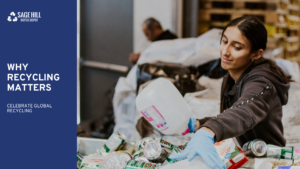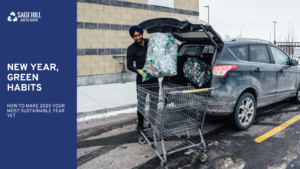Your Guide to Single-Use Plastic Replacements
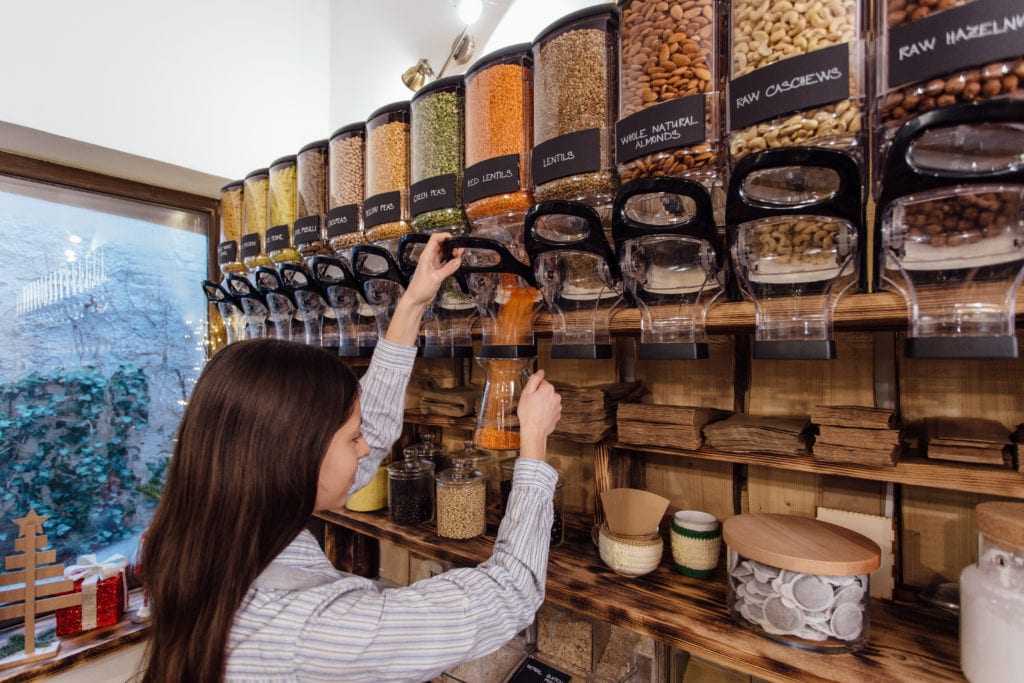
Over 8 million tons of plastic end up in our oceans each year. That’s 8 million tons of plastic that don’t have to be there.
Single-use plastic accounts for over 300 million tons of plastic created each year. Since plastic alternatives have made a breakthrough in the past few years, there’s no excuse not to start replacing items we use in our daily lives.
If we don’t need to create waste that’s killing animals and polluting our Earth, why would we?
Exactly! There are other options.
Keep reading to learn more about single-use plastic and how we can replace them!
What Happens If We Don’t Replace Single-Use Plastic?

If we continue to use single-use plastic for the next 30 years, our oceans would be filled with over 12 billion metric tons of plastic litter by 2050.
Not only would our oceans be filled with plastic litter, but plastic bags and other single-use plastic can cause so much other damage as well.
Since plastic bags are not biodegradable, they instead break into tiny pieces that pollute the Earth further, called microplastics. Microplastics can make their way into the human food supply. If you don’t want to be eating plastic, you should start making steps to replacing your single-use plastics.
What Is the World Doing to Reduce Plastic Waste?
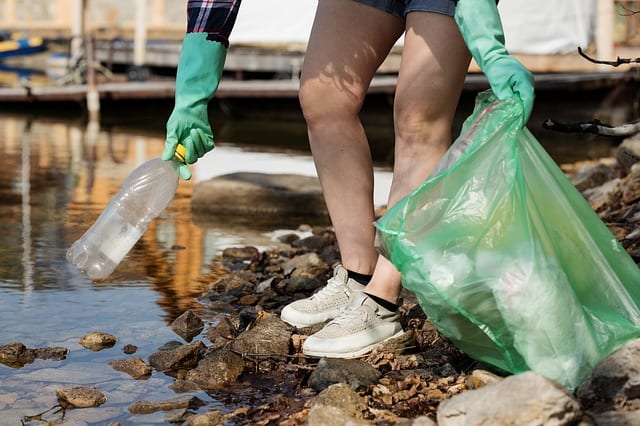
As the world’s eyes open to the harmful effects that single-use plastics have on not only the Earth, but every living creature on it, some people and nations are taking steps to combat the pollution.
As global concern rises, the need to find a way to reduce single-use plastic waste is growing.
Plastic Bag Bans
Some countries are realizing that using single-use plastic has become detrimental to our planet and they began to ban plastic bags. While some countries haven’t eliminated plastic bags completely, they have increased taxes on the use of the bags. A few of the countries that are making changes are as follows:
- South Africa
- Morocco
- Canada
- Cambodia
- England
- Germany
- Wales
- Argentina
- Brazil
- Chile
These are just a few of the countries that have set measures in place to reduce single-use plastic.
Unfortunately, the majority of countries have not put any bans on single-use plastic bags. However, some states in the US are beginning to implement their own taxes on each plastic bag.
With each new plastic ban that is set in place, single-use plastic waste is declining rapidly.
Creating a Zero-Waste Future

Not only are some countries trying to reduce plastic waste, but they’re also going all-in to create a zero-waste future.
Costa Rica has become the first country in the world to eliminate plastic bags, cutlery, and straws! So what’s their end goal?
They want to reduce plastic waste by 80% by using plastic alternatives that are biodegradable in any environment.
The best part? Any city, state, territory, or country can follow suit to eliminate plastic. Canada is one of the countries that is following in Costa Rica’s footsteps to create a zero-waste future.
Reducing Importation of Single-Use Plastic
Some countries are reducing plastic waste in their country by banning the importation of any single-use plastics.
Jamaica has eliminated any importation of plastic straws or plastic bags into the country. They are instead using plastic alternatives like boxes, environmentally-friendly bags, and paper straws.
Imagine what the world would look like if every country banned the importation of plastic bags and straws. There would be no demand, so countries would stop producing them.
Reduce Taxes on Plastic Alternatives
What do people love more than saving money? Not a whole lot.
Since some countries are aware of how humans operate, they’ve taken steps to make reducing plastic beneficial for everyone.
Antigua and Barbuda declared that any plastic alternatives used instead of plastics will be tax-free. They also gave individuals reusable bags to combat single-use plastic usage.
In just the first year, landfills saw a 15% decrease in plastic waste. Imagine what that would be in five years!
Use Nature as an Alternative
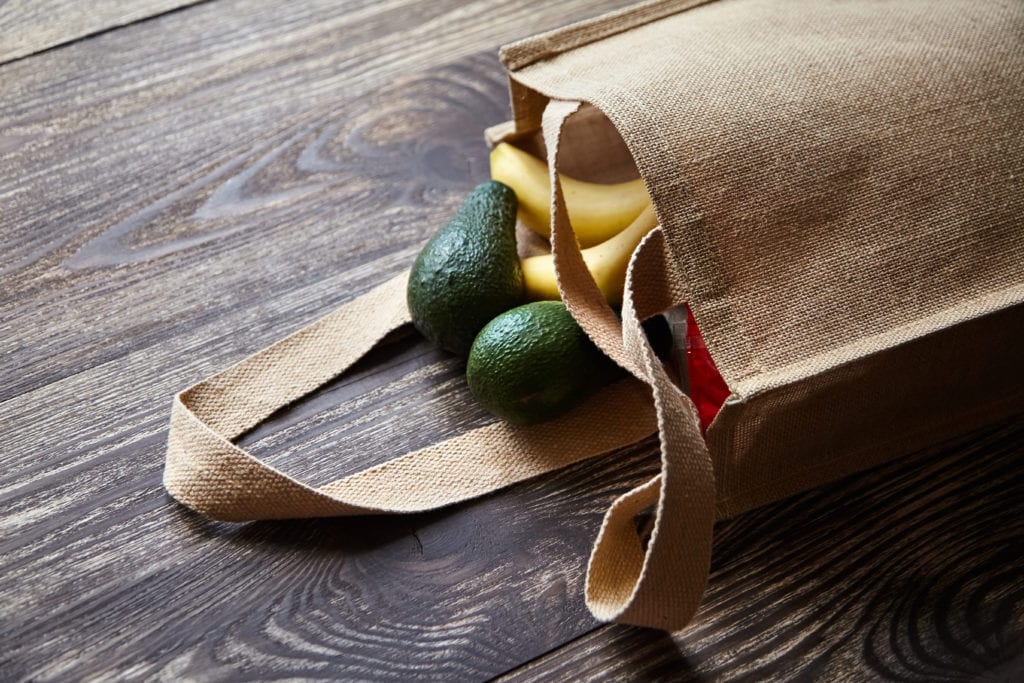
It’s no surprise that the world operated smoothly before plastic became a huge part of everyone’s life. Natural resources are just as useful, we just seem to have forgotten that these days.
But some countries are remembering that nature supplies everything.
Instead of using plastic plates, why not use banana leaves to serve food? Instead of using plastic bags, why not replace them with jute? The course texture holds items just as well as bags, if not better.
What Single-Use Plastics Are The Worst?
Although all single-use plastic is wasteful and damaging to our planet, there are some that are worse than others. Some of the worst plastics are:
- Water bottles and their tops
- Plastic utensils
- Straws
- Plastic bags
- Food wrappers
- Coffee cups
- Take out containers
So what can you do to make sure you are not part of the problem? A lot!
Instead of using the plastics above, there are many plastic alternatives that you can use to help save the planet and reduce plastic waste.
What Steps Can I Take As An Individual To Reduce Single-Use Plastic?
You don’t have to wait around for your government to step in and help save the planet. You are able to make a change by doing small things day in and day out to help save the world from plastic pollution.
There are plenty of plastic alternatives that you can use for everyday objects.
What Plastic Alternatives Should I Be Using?
As the world has begun to notice just how terrible plastic is for the planet, plastic alternatives are coming about left and right. To help you join the fight, we’ve compiled a list of plastic alternatives so you can start using them to reduce your own plastic waste!
Straws
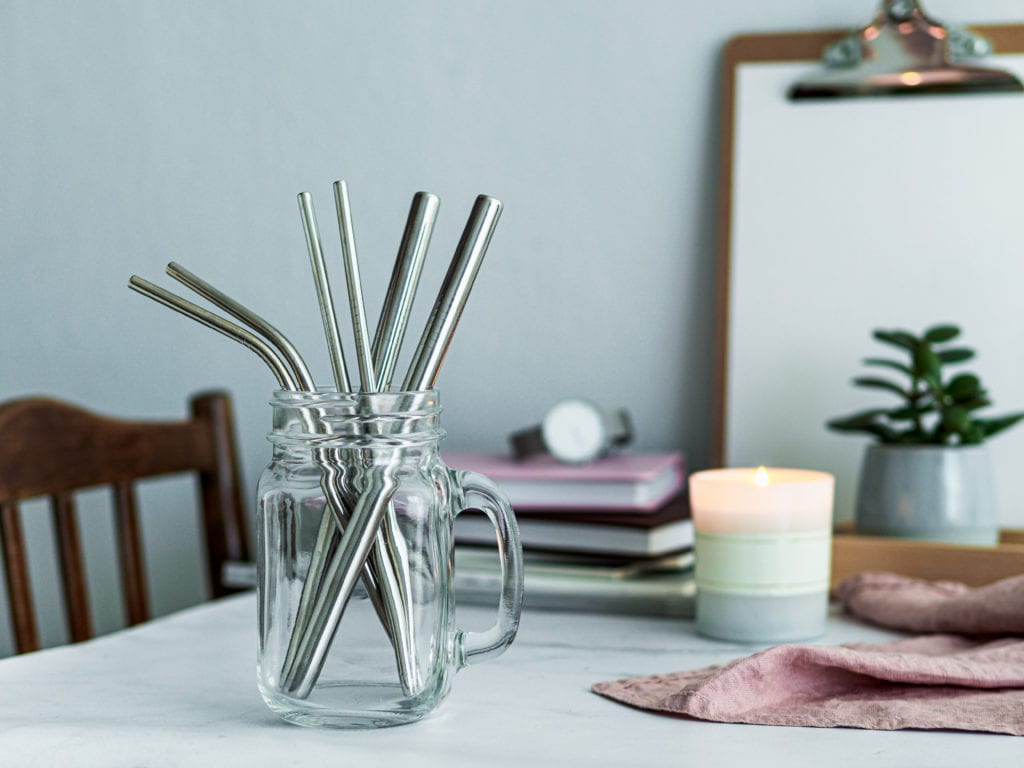
As you’ve probably noticed in many restaurants and coffee shops, servers are giving out fewer and fewer plastic straws. Instead, you may have received a paper straw, a compostable straw, or more creatively, a raw noodle.
Yet, not all places are on board with these changes. Instead of using any plastic straws that are handed to you at restaurants, you can bring your own straw.
There are metal straws or bamboo straws that come in all different shapes and sizes. Some are bent, some are flexible, some are straight and tall like normal straws. With so many to choose from, you can make buying reusable straws fun!
Who knew saving the world could be so fun?
Water Bottles
Not only is buying single-use water bottles wasteful for the planet, but it is also a waste of money.
Think about it. If you went to a drug store every day and bought a bottle of water, you’d be spending over $300 a year just on water. If you bought a reusable water bottle, you would be making a one-time purchase of less than $30, if that.
Refillable Coffee Mugs
Similar to reusable water bottles, refillable coffee mugs are plastic alternatives that you can bring to a coffee shop. Instead of getting a single-use plastic cup each time you get coffee, they can pour you a cup into your plastic-free cup. PLUS, most coffee shops actually give you a small discount for bringing in your own cup!
You get your coffee, and you’re saving the planet at the same time.
Reusable Grocery Bags
Reusable grocery bags are sold just about everywhere. The grocery store, drug stores, online, any market… the options of where to buy them are endless.
The best part of buying reusable grocery bags? You can use them for more than just groceries.
Because they last much longer than single-use plastic bags, you’ll also save money from using one or two bags over and over again.
Compostable Cutlery
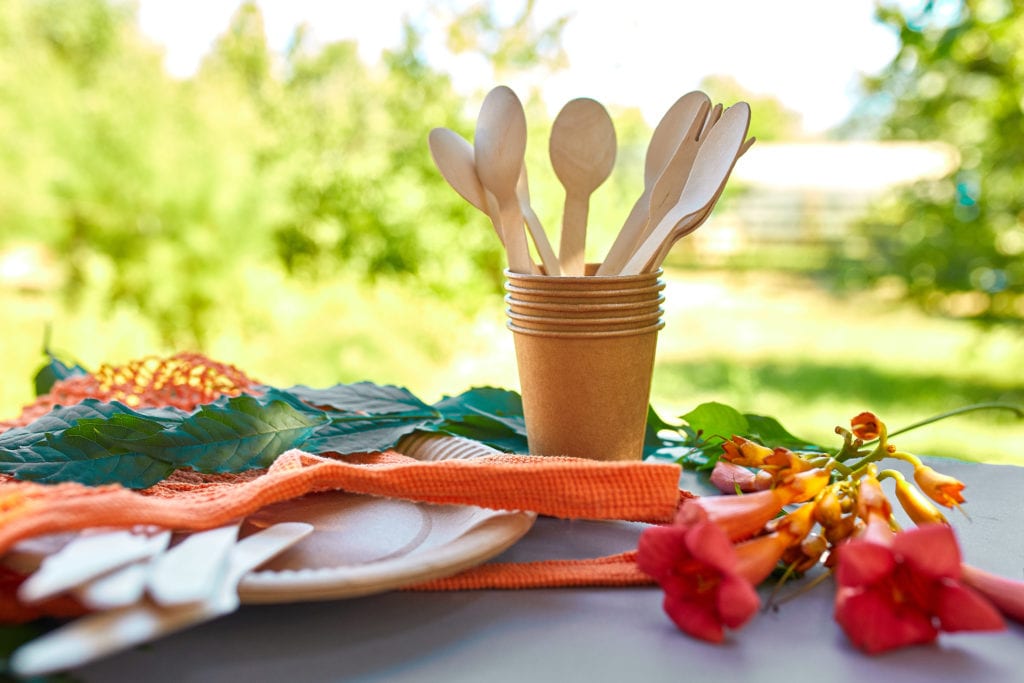
Plastic cutlery and utensils can take over 1,000 years to decompose. That seems unfathomable.
An easy way to make sure the planet is not filled with tons of plastic cutlery in our oceans, landfills, streets, and sidewalks is to replace them with compostable cutlery.
Many companies are beginning to create bamboo cutlery and wooden cutlery that you can wash and reuse on picnics, in the car, at a fast-food restaurant, or anywhere else you’d use plastic utensils.
Beeswax Wrap
When you think of single-use plastic, you probably don’t automatically think of saran wrap or tin foil. This is one of the worst types of plastic to store your food.
Instead, you could be using beeswax wrap! It does the same thing, comes in more styles and colours, and still keeps your food fresh.
Biodegradable Toothbrushes and Floss
You may have thought that using a plastic toothbrush was unavoidable – but it’s not.
You can use biodegradable or bamboo toothbrushes to combat plastic waste.
And floss? Did you know it’s made of plastic and is not only harmful to the planet but also our health? It’s true.
Instead of using plastic floss, you can make the conscious decision to buy biodegradable floss like charcoal floss.
Besides Using Plastic Alternatives, What Else Can I Do?
Choosing to use plastic alternatives is the first step to reducing plastic waste. But you don’t have to stop there.
Create Art
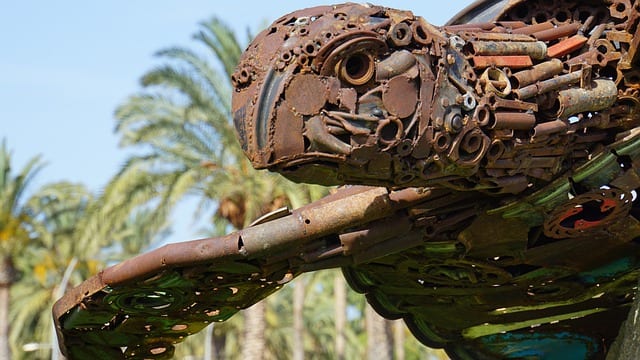
Creating art is a powerful way to speak to others through visual imagery.
You can showcase the harsh reality of what plastic waste is doing to our Earth, capture what the world could look like plastic-free, and show others helping out with saving the planet.
Utilize Social Media
With millions of people on social media these days, it’s a pretty easy way to spread the word about eliminating plastic waste.
You can post about fundraisers, drives, donations, statistics, photos, or anything else you think would speak to your followers. Whatever you decide to do, speaking out and sharing information about plastic waste will help reduce it.
Seek Out Non-Profit Organizations
As the world becomes more aware of how detrimental single-use plastic truly is, there are more and more organizations that are trying to help.
As an individual, it may seem impossible to create a large change by yourself. But you’re not alone. You can always reach out to a non-profit organization to organize a drive or help out as a volunteer.
If you’re hosting an event in the community, you could also invite a non-profit to help out with creating a zero-waste event and spreading the word!
Fundraise
A simple way to help out with reducing plastic waste is to fundraise. You can raise money to donate to non-profits or organizations that are fighting to reduce pollution on our planet.
Whether you fundraise on your own or through an organization, both will be helping to make a difference.
Create a Bottle Drive
Creating a bottle drive is one quick way to reduce plastic waste. Instead of the plastic bottles ending up on the streets or in our oceans, they all go to one place.
Bottle drives can also help you come up with cash if you need some extra for your organization!
Save the planet and make some extra cash? Yes, please.
Recycle
If you do happen to use single-use plastics, since some seem unavoidable at the moment, you can recycle.
Although you can recycle, you should always first look to see if you can recycle what you’re using. Recycling objects that aren’t actually recyclable can be just as detrimental to the Earth as not recycling at all.
Ready to Save the World?
After reading this article, you may be rattled and upset about how much our world is destroyed each day because of single-use plastic.
You don’t have to sit back and watch the pollution grow. Instead, you can take it into your own hands and begin to make a change. If everybody made small steps to reduce the plastic in their own lives, it would collectively add up to make a huge impact.
At Sage Hill Bottle Depot, we want to help you help the Earth. Contact us today if you would like to organize a bottle drive or have questions about your own recyclables, so we can work together to save the planet, one bottle at a time!
Related Posts
Why Recycling Matters
Celebrate Global Recycling At Sage Hill Bottle Depot, we’re passionate about recycling and proud to be part of Calgary’s green…
New Year, Green Habits
How to Make 2025 Your Most Sustainable Year Yet We hope that your 2025 New Year’s Resolution prioritizes something that…

